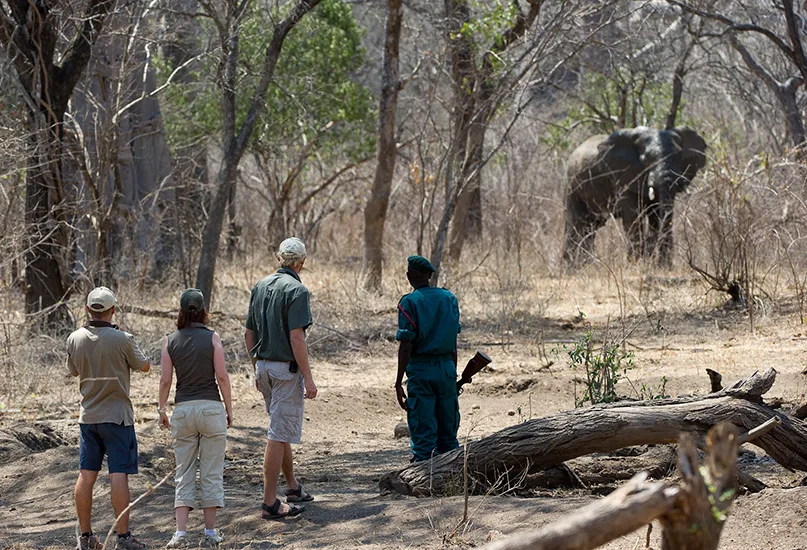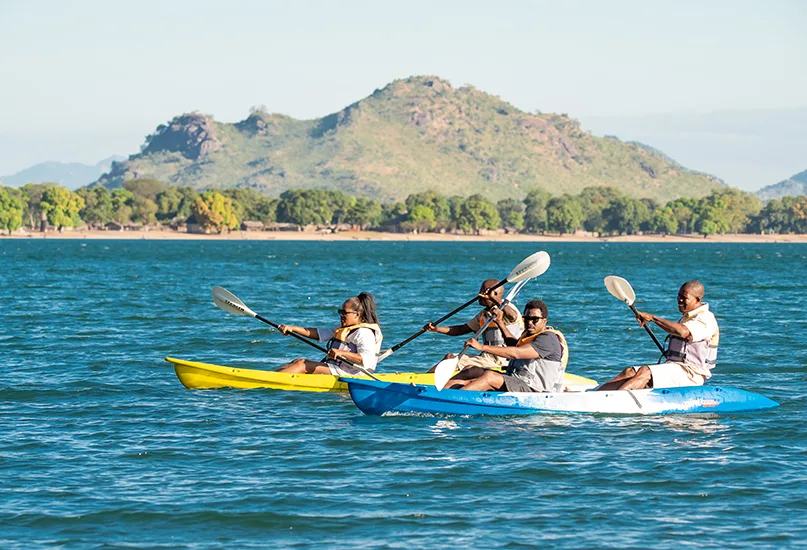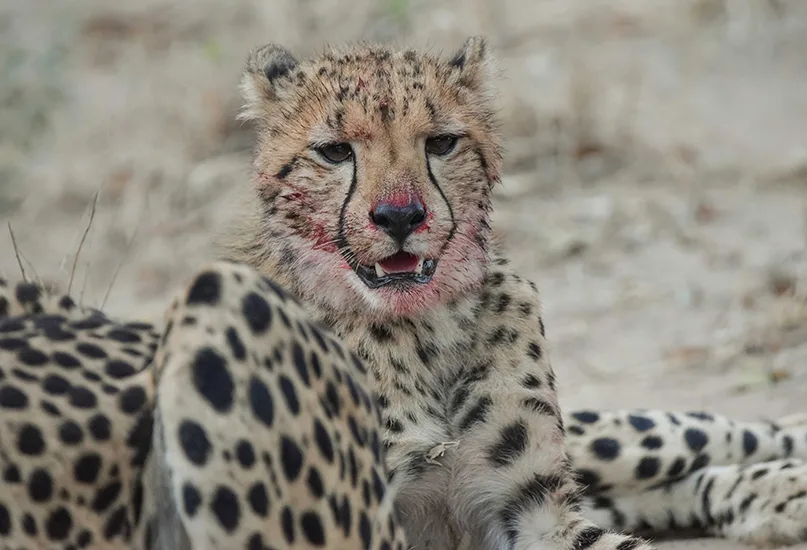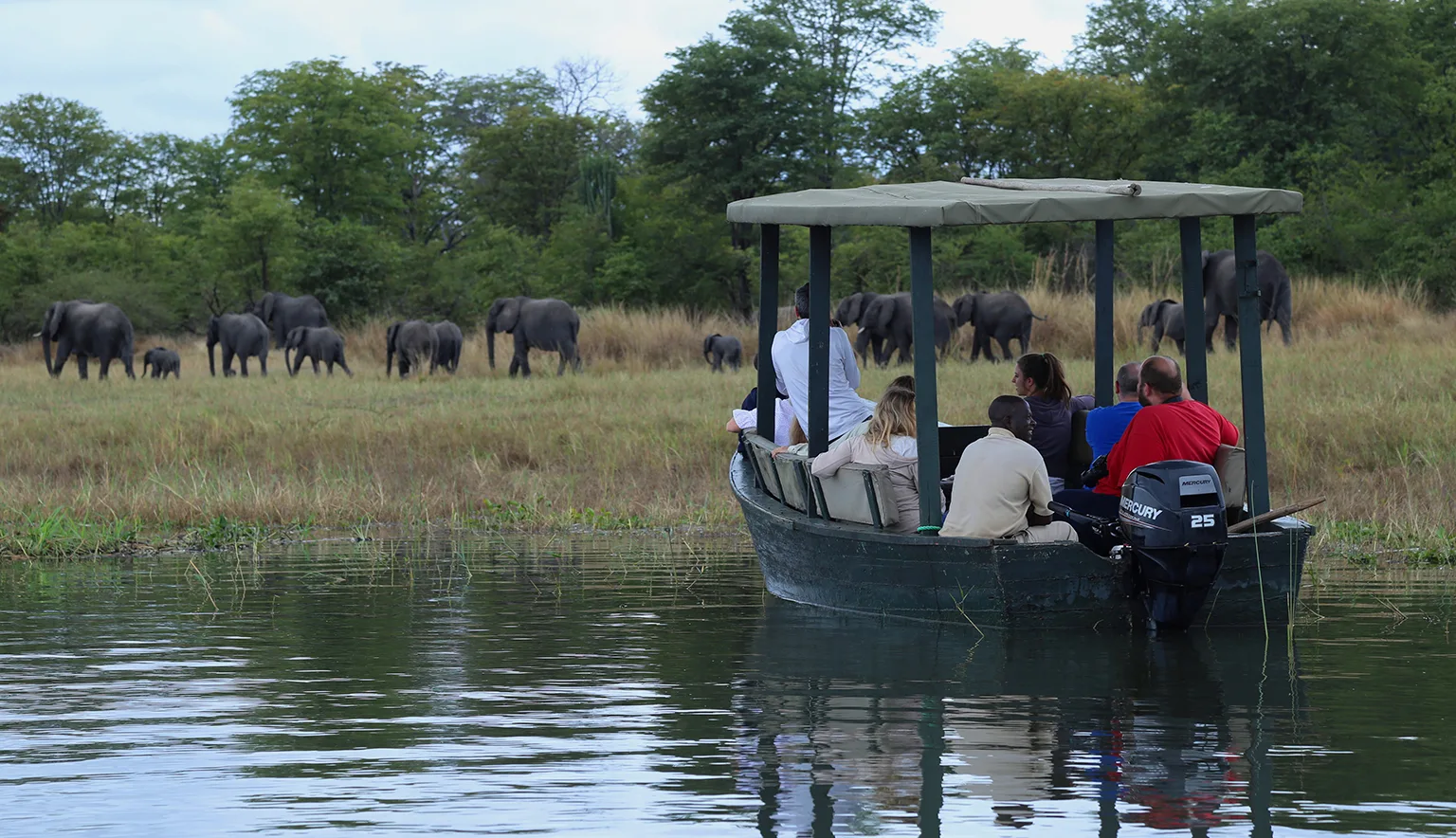Endowed with spectacular scenery and inhabited by diverse wildlife, Malawi is known for its warm hospitality and historic traditions. The Malawi Ministry of Tourism’s Public Relations Officer, Joseph Nkosi, tells us why everyone should explore Africa’s hidden treasure.
The Malawi Ministry of Tourism (MMT) was established to cultivate and sustain a vibrant, appealing destination image, inspire and inform potential visitors, and highlight Malawi’s unique attractions and rich cultural heritage.
By showcasing its breathtaking landscapes, abundant wildlife, and warm, welcoming communities, the ministry seeks to entice travellers from around the globe to experience the diverse offerings of this beautiful country.
Through targeted marketing campaigns and promoting sustainable tourism practices, MMT strives to position Malawi as a must-visit destination in Africa, fostering economic growth and cultural exchange.
Q&A WITH THE MALAWI MINISTRY OF TOURISM
Firstly, can you provide an insight into MMT, what it has achieved since its inception, and how it has shaped Malawi as a meetings, incentives, conferences, and exhibitions (MICE) destination?
Joseph Nkosi, Public Relations Officer (JN): MMT is mandated to develop and promote tourism as well as conserve wildlife to support the country’s socioeconomic growth and development.
Some of our achievements include implementing policies and strategies that have established Malawi as a sustainable tourism destination. This success is attributed to developing and implementing key policies and essential frameworks, such as the National Tourism Policy, Tourism Marketing Strategy, and Ecotourism Development Strategy.
Whilst regulations and standards ensure a quality tourism experience, Malawi has developed and utilised a classification and grading system for tourism enterprises, contributing to the sector’s growth.
Marketing and promotion are vital for boosting tourism. The ministry consistently represents Malawi at prominent international tourism fairs and exhibitions such as WTM London, ITB Berlin, and Africa’s Travel Indaba, and facilitates immersive press trips for international media.
In terms of development and investment, we have observed growth in the sector over the years, both in infrastructure and service quality, and developed the Malawi National Tourism Investment Master Plan (MNTIMP).
Regarding wildlife conservation, Malawi has achieved remarkable triumphs and revitalised our ‘Big Five’ populations within the Majete, Liwonde, and Kasungu National Parks, all of which were once in critical decline.
We are also shaping Malawi as a MICE destination. Whilst Malawi is renowned for its natural beauty, MMT is actively working to enhance its MICE capabilities. Efforts are underway to improve conference facilities, upgrade hotels, and develop better roads and services to make Malawi a viable MICE option.

What are the organisation’s current goals?
JN: One of our primary objectives is to develop and promote a sustainable tourism sector that contributes to the country’s socioeconomic development.
This encompasses responsible tourism practices that protect the environment and benefit local communities.
Additionally, we aim to enhance the tourism sector’s contribution to Malawi’s GDP by attracting more tourists, generating foreign exchange, and creating employment opportunities.
How do you market Malawi as a destination?
JN: We promote Malawi as a tourism destination through various strategies highlighting its unique natural beauty, diverse wildlife, and rich cultural heritage.
Key initiatives include participation in international tourism fairs, collaboration with our embassies, engaging market representation companies in the USA, Netherlands, and China, hosting a Malawi International Tourism Expo, and organising personalised travel media tours from our various source markets, amongst others.
How do you promote off-season travel, for example, during the rainy season?
JN: Whilst the dry season is generally regarded as the peak period for tourism in Malawi, there are strategies in place to encourage off-season travel, which primarily coincides with the rainy season.
Malawi promotes the rainy season as an optimal time for niche offerings such as fishing and birdwatching as we have over 650 bird species, 10 percent of which cannot be found anywhere else in Southern Africa.

Are there any interesting projects in the pipeline you wish to highlight?
JN: Implementation of MNTIMP is a significant project that encompasses 103 identified projects, with 10 priority projects having already undergone pre-feasibility studies.
The ongoing execution of this master plan remains a primary focus, which includes attracting investment for the various projects.
Additionally, several 5-star hotels are being developed in Lilongwe and Blantyre to support the promotion of Malawi as a premier MICE destination.
Why, in your opinion, should someone visit Malawi?
JN: The following are 10 reasons to visit Malawi:
- Pleasant climate
- Peaceful and compact
- Big in hospitality
- Lake Malawi
- Africa’s newest ‘Big Five’ destination
- Authentic nature experiences
- Attractive outdoor sporting conditions
- Rich cultural heritage
- Local delicacies
- Popular local events

What are some of the country’s most unique landmarks?
JN: Lake Malawi is an extensive freshwater lake and a hallmark of Malawi, showcasing breathtaking scenery, rich diversity of aquatic life, and a range of water sports opportunities. Its crystal-clear waters and vibrant fish populations contribute to its distinctive appeal.
Then there’s Mount Mulanje, a majestic mountain characterised by towering peaks that reach an elevation of 3,002 metres (m) above sea level. Its deep gorges and unique flora are a haven for hikers and nature enthusiasts.
The Chongoni Rock Art Area is a UNESCO World Heritage Site that showcases an impressive collection of rock paintings, offering valuable insights into the cultural traditions of the region’s ancient inhabitants.
Liwonde National Park is renowned for its revitalised wildlife populations and the Shire River that flows through it. The boat safaris along the Shire River are particularly popular.
What trends are transforming the tourism industry in Malawi, and how are you utilising them?
JN: The global tourism industry is continuously evolving, and Malawi is adapting to these changes.
Notable trends include ecotourism and sustainable travel; there is a rising demand for responsible travel experiences that minimise environmental impact and benefit local communities.
Malawi is leveraging this opportunity by promoting its national parks, wildlife reserves, and eco-lodges.

What challenges does the tourist industry in Malawi face?
JN: Whilst efforts are being made, Malawi’s marketing and promotion efforts may not be as extensive as those of other regional competitors.
There is a need to increase awareness of Malawi as a tourist destination in key international markets. The lack of direct flights from key source markets makes the destination somewhat expensive, however plans are underway to address this issue.
Finally, are you optimistic about the future of tourism in Malawi?
JN: There are compelling reasons to be optimistic about the future of the tourism industry in Malawi. The country’s unique natural beauty, diverse wildlife, and rich cultural heritage are increasingly gaining recognition among international travellers.
Furthermore, the Malawi government has identified the tourism sector as a key contributor to the nation’s economic growth and has prioritised it, indicating a promising future for the industry.






































